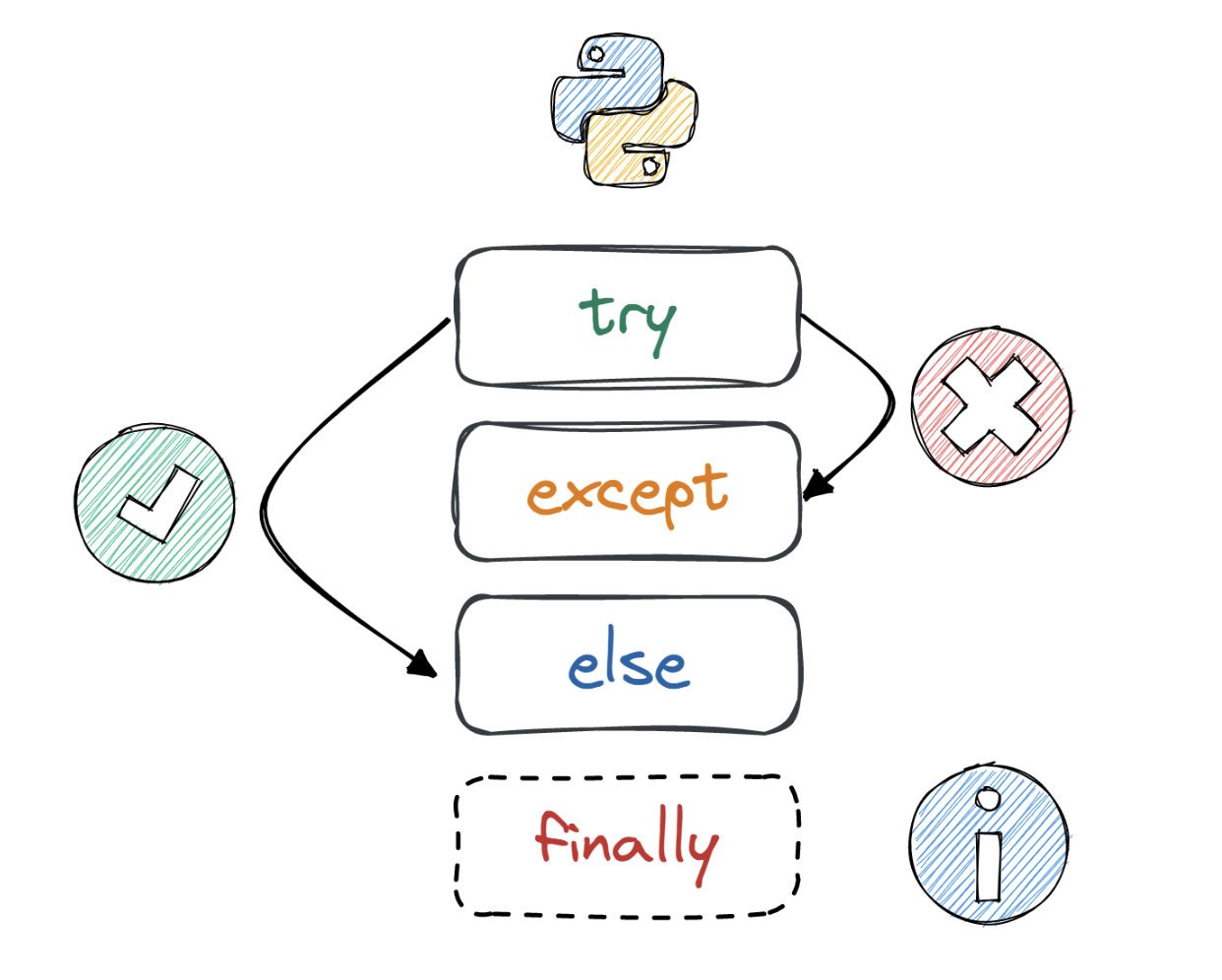
"Python Control Flow and Error Handling"
This chapter explores the essential tools for guiding program execution in Python, ensuring both smooth operation and resilience in the face of unexpected events.
Key Concepts:
-
Control Flow Structures:
- Decision-Making: Employ
if,elif, andelsestatements to execute code blocks conditionally, based on specified criteria. - Repetition: Utilize
forandwhileloops to repeat code blocks multiple times, with optionalbreakandcontinuestatements for early termination or skipping iterations.
- Decision-Making: Employ
- File Handling: Interact with files for input and output operations using Python's built-in file-handling capabilities.
-
Error Handling:
- Exception Handling: Gracefully manage errors and unexpected events using
try,except, andfinallyblocks to maintain program stability and provide informative error messages. - Custom Exceptions: Create tailored exception classes to signal specific error conditions within your code, enhancing error handling granularity.
- Exception Handling: Gracefully manage errors and unexpected events using
Benefits of Effective Control Flow and Error Handling:
- Program Logic: Implement complex decision-making processes and iterative tasks.
- User Interaction: Create interactive programs that respond to user input and file data.
- Robustness: Build programs that can handle unexpected errors and continue execution, improving reliability and user experience.
- Code Maintainability: Write code that is easier to understand, debug, and modify due to clear control flow and error handling strategies.
Mastering these concepts is fundamental to developing Python programs that are both versatile and resilient.